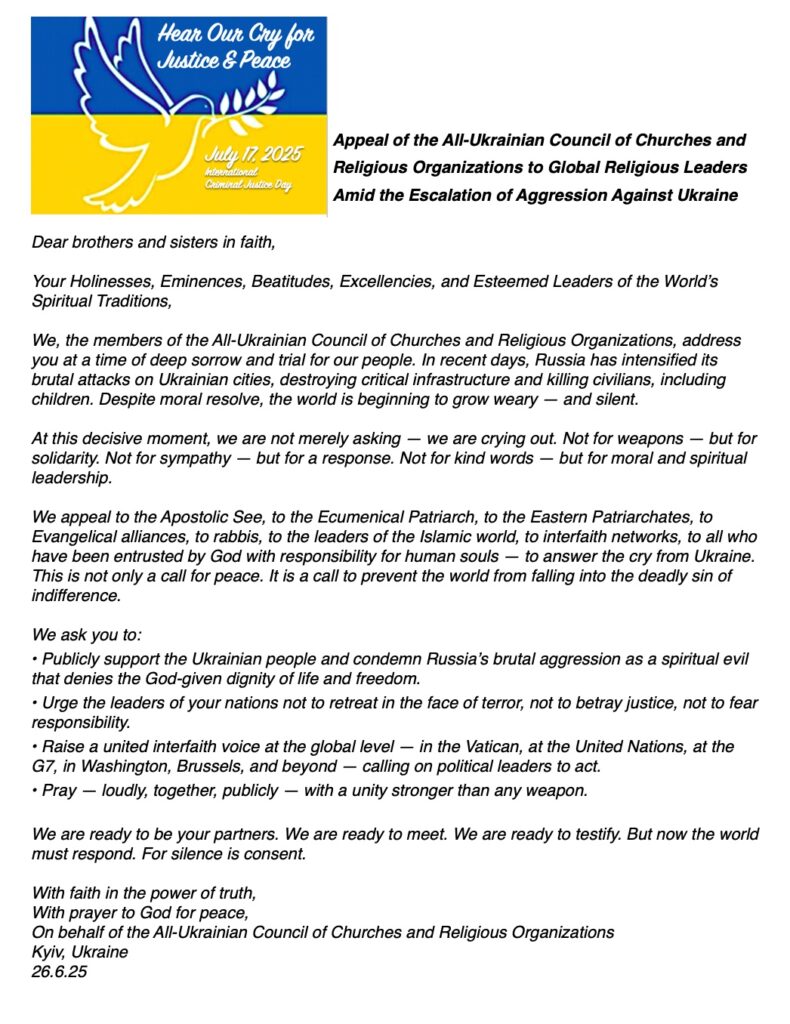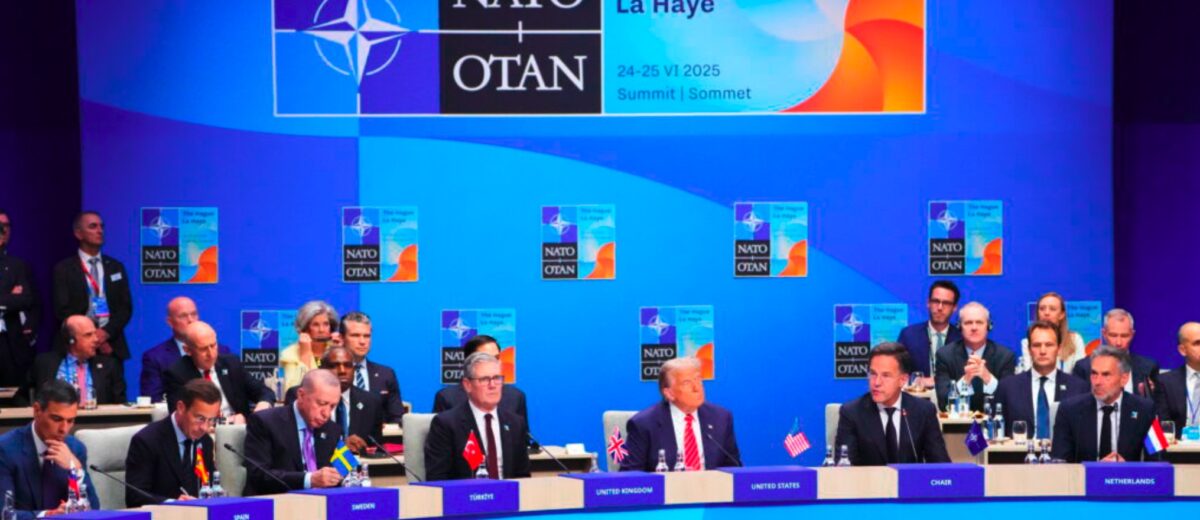This week’s NATO summit was celebrated as a success by the Dutch authorities – the 5 per cent defence spending target was agreed on (for ten years from now!), the Article 5 commitment to collective defence was reaffirmed, and you-know-who’s ego was left intact.
But what was not achieved?
No new substantive action of economic sanctions were agreed in response to Putin’s brutal escalation of attacks on civilian targets in Ukraine, his new summer offensive along the eastern Ukraine front in disregard of calls for an unconditional ceasefire, his increase of missile production indicating long term intentions towards Europe, and his recruitment of 25,000 North Koreans to aid drone production.
The moral ambiguity of the White House and its active blocking of the US Senate sanctions bill against Russia, leaves Ukraine – and the free world – in dangerous limbo. The violence in Iran, Israel and Gaza distract the world’s attention and add to the disappointment of Ukrainians in the West with the lack of moral resolve.
Yet should we leave it to politicians to define moral realities? Is that their competency? Should that not be a task and responsibility of the world’s faith communities? Is this not the moment for leaders of faith communities everywhere to stand up, speak up and wage peace–locally, nationally and globally–on behalf of a nation battling for survival against injustice and against the odds?
Moral clarity
In response to a perceived weariness and silence from Ukraine’s allies, A Cry for Peace and Justice has come this week from the All Ukrainian Council of Churches and Religious Organisations (AUCCRO). It calls for faith communities around the world to oppose aggression and defend peace.
The council addresses the world: ‘at a time of deep sorrow and trial for our people. In recent days, Russia has intensified its brutal attacks on Ukrainian cities, destroying critical infrastructure and killing civilians, including children.
‘At this decisive moment, we are not merely asking — we are crying out. Not for weapons — but for solidarity. Not for sympathy — but for a response. Not for kind words — but for moral and spiritual leadership.
‘This is not only a call for peace. It is a call to prevent the world from falling into the deadly sin of indifference.‘ (See full text below).
In response, a proposal is in the pipeline for a global interfaith online zoom meeting convening representatives of faith movements worldwide in a joint declaration of solidarity, resolve and moral leadership. The proposal is for a 90-minute global connection to facilitate multi-language dialogue, testimony, prayer and a declaration stressing the moral duty to oppose violence, oppression and injustice.
The date proposed is July 17 – a date few would recognise as International Criminal Justice Day commemorating the establishment of the International Criminal Justice Court in The Hague. When world leaders or military forces commit atrocities—such as the targeting of civilians, forced deportations, torture, and rape—international justice is one of the few tools available to hold them accountable. Ukraine has formally brought war crimes cases to the ICC. Supporting this day aligns with efforts to ensure that those responsible are not above the law.
Criminal justice isn’t just about punishment; it’s about recognising the pain of victims and restoring their human dignity. Observing this day says to survivors: The world hears you. Your suffering matters.
International law echoes what faiths have long taught: that war must have limits, the innocent must be protected, and leaders must be held accountable for evil done in their name. Supporting this day is an act of moral coherence.
By shining a light on justice, the international community can deter future crimes. Silence and inaction send a message of permission. Observing this day sends the opposite message: there will be consequences. The vacillation of the Oval Office, once seen as leader and defender of the Free World, must be opposed.
Short notice?
At a preparatory zoom meeting this week with various network representatives joining in from Kyiv, Brussels, Rome, Thessaloniki, Amsterdam and Washington, the question of timing was raised. Was this date too short notice? Was it wise to hold it during the summer vacations?
But, asked one of the Ukrainians, was the alternative to wait three months until the summer is over? Who knows what the situation will be then? The Russian aggressors will not go on vacation! Neither can the Ukrainian defenders!
News media are grateful for news in the ‘silly summer season’. Even if people are on vacation, surely they can find 90 minutes to go online, wherever they are in the world, in solidarity with those who do not have the luxury of a vacation from the violence.
What would be the desired outcome?
• Commitment to speak up to awaken the moral conscience of our communities;
• Commitment to sustained prayer and spiritual solidarity for peace in Ukraine;
• Mobilisation of humanitarian support through faith networks;
• Advocacy with governments to uphold international law, support Ukraine’s sovereignty, and hold aggressors accountable.
Is this an initiative you would support?
Watch this space.
_________________________________________________________________

Till next week,




Yes – we would support in some way.
The ongoing atrocities in Ukraine are heartbreaking. May the Lord bring an end to all this evil! And may Putin be stopped in what he is doing. How can he, and those in Russia who support him, continue with this war? A war where civilians and innocent children are killed! One day they will have to give answer God, and may it be soon! What are they gaining? How can Ukraine and Russia ever live at peace with each other? How can they be friends? It would take a miracle, but fortunately, our God is the God the impossible.